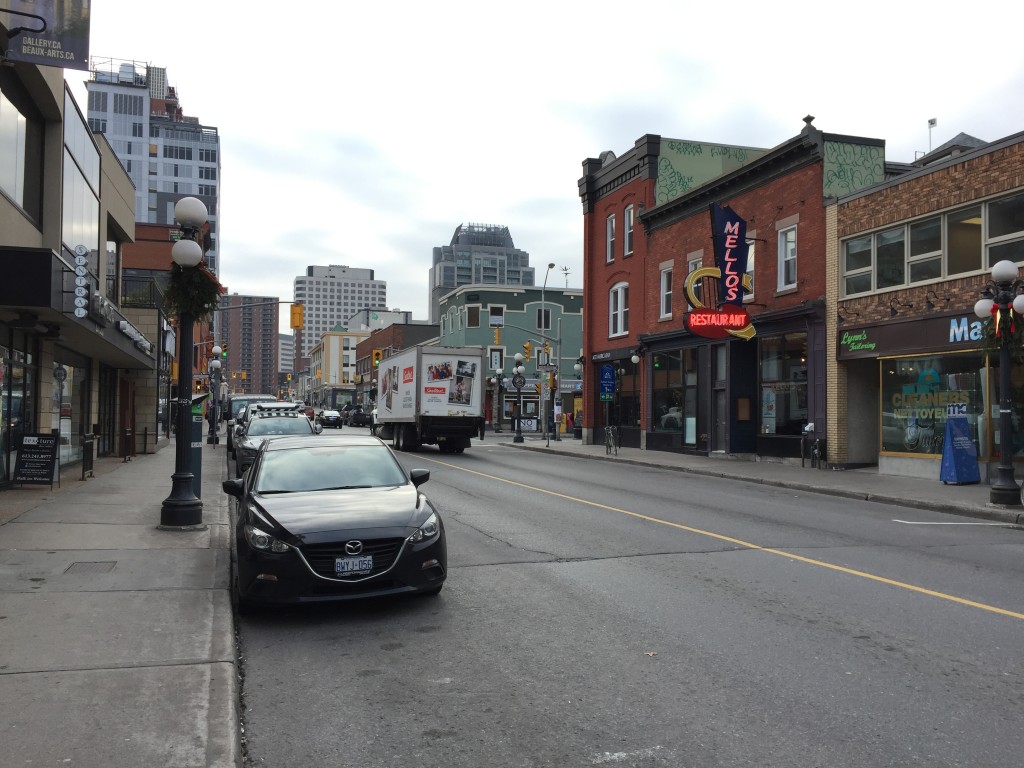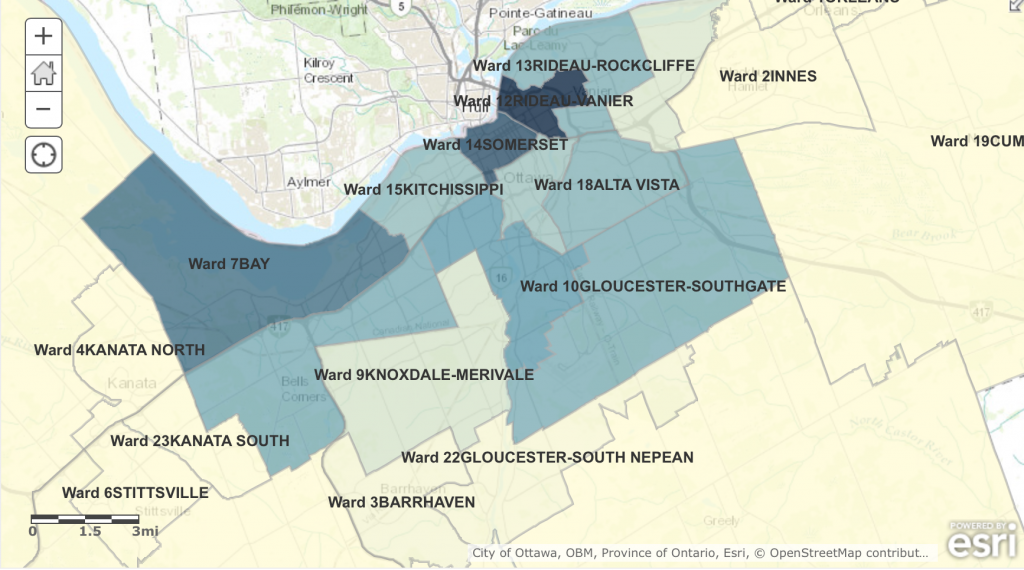
In Rideau-Vanier some residents spend more of their household income on shelter costs than in any other ward, according to data from Statistics Canada.
The 2011 National Household Survey shows 6,305 respondents in the ward spend between 30 to less than 100 per cent of their total household income on rent or a mortgage. The Somerset ward to the west of Rideau-Vanier also recorded high numbers, coming in second with 5,540 respondents. The lowest number was from the rural ward of Osgoode, with 995 respondents.
Experts say rent or a mortgage should not exceed more than 30 per cent of total household income otherwise people will be at risk of financial hardship.
“It’s an affordability issue,” says Laurie Campbell, chief executive officer of Credit Canada Debt Solutions, a non-profit credit counselling service. “If you put more than 30 per cent of your income towards housing costs, it really doesn’t free up a lot of money for other costs.”
The Canada Mortgage and Housing Corporation which insures mortgages, recommends the slightly less conservative figure of 32 per cent for housing costs.
One such Ottawa resident having trouble sticking to that 32 per cent figure is Jocelyn Brock. She says rent in the downtown ward of Somerset is very expensive and almost all her paycheque goes to basic living costs.
“I’m lucky enough to have paid off all my school debt, but it makes me anxious to live paycheque to paycheque,” she says. “Additional costs like internet, phone and food…it adds up and takes nearly all my paycheque.”
Brock has worked short-term contracts for the federal government since graduating from Algonquin College last year. She says the contracts don’t pay very well and offer no guarantee of future employment. This makes it hard to plan for the future, which worries her, she says.
“There’s no forward plan, no forward thinking,” she says. “You can’t anticipate where you’ll be.”

Better jobs and better incomes, this is one solution to the city’s affordable housing problem says Mathieu Fleury, city councillor for Rideau-Vanier.
“Income. Overall income. We need to make sure people make a better income and make more money and stay in the middle class…then they’ll be able to have adequate housing,” he says.
Together with the need for better jobs for the ward, Fleury adds Rideau-Vanier’s demographics are also a likely contributor to the ward’s affordable housing issues.
“It’s because historically there’s been a lot of Ottawa community housing units, the student population and because of the rental market overall in our area,” he says. “Those are all factors explaining why housing comes at a prime in the area and is costing a lot of money for our residents.”
Lorraine Bentley agrees with Fleury’s assessment. She is the executive director of Options Bytown, an agency which provides permanent housing for vulnerable people like the homeless and the mentally ill.
She says people tend to think of Ottawa as a stable and affluent government town. The truth is Ottawa does have a substantial population of people who are of low income, including the working poor and the homeless, she says.
She says one solution is a national housing strategy—a federally co-ordinated plan to get more affordable housing units built.
“Canada up until 1992 did have a national housing strategy and affordable housing was being built all across the country,” she says. “Now it’s more provincial. Quebec has continued to build affordable housing.”
She says she doesn’t like to use the term ‘crisis’ to describe the current housing situation in Ottawa—instead, she asks: “if you didn’t have a home, wouldn’t you feel you [were] in crisis?”
